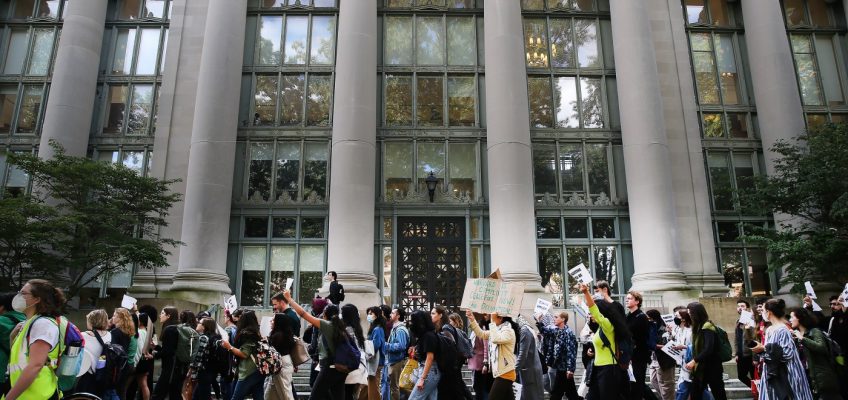The current crisis sparked by Hamas’ surprise terrorist attack on Israel has roiled college campuses far and wide. Essentially, two camps have emerged within our student bodies – those sympathetic to Israel, and those sympathetic to the plight of the Palestinians in Gaza. This is a time that calls for exceptional wisdom and sound judgment by college administrators, and yet these two commodities seem in rather short supply.
At Harvard University in Cambridge, newly installed President Claudine Gay, after first declining to take a public stance, concluded that she should issue a statement when Palestinian sympathizers within the student body outrageously excused the slaughter by Hamas, instead choosing to highlight the righteousness of their political cause. Gay’s statement, in relevant part, said: “As the events of recent days continue to reverberate, let there be no doubt that I condemn the terrorist atrocities perpetrated by Hamas.” She noted that regardless of one’s political views, the slaughter of innocents is indefensible. She noted that no student group “speaks for Harvard University or its leadership.”
And therein lies the rub. Gay was speaking for the institution, rather than for herself. It is highly dubious that an educational institution should take official positions on any political or geopolitical matter, particularly one as divisive as the bitter decades-long battle between Israel and the Palestinians. If a university is truly going to be home to a wide and diverse assortment of views on myriad political, social, religious, and intellectual issues of the day, it has to be made clear to students, faculty members, alumni and the general public that all members of the academic community must feel free to opine, to express minority-held and even extremist views. There can be no “official” position on any such subject, at Harvard or elsewhere.
The duty of college administrators in these fraught situations is to maintain an atmosphere in which all sides feel free and safe to express their views, even if many on campus (or the administrators themselves) are highly offended and outraged. Many universities and colleges have seen physical violence and assaults break out due to students in both camps’ feeling that they are unable to discuss their differences, which is completely contradictory to the goals of the liberal arts. It thus falls on administrators’ shoulders to bridge this divide.
At Tufts University in Medford, the same issue arose. Pro-Palestinian students issued what were reasonably described as “obscene” comments supporting Hamas issued by the Tufts Students for Justice in Palestine group. In response, a university spokesperson issued a statement: “Dismissing the loss of Israeli lives in the recent surprise attacks cannot be condoned. We deeply mourn those losses and vehemently disagree with the SJP statement. No student groups speak for the University.”
However, the Tufts statement completely misses the threshold question: Should anyone speak for Tufts on such highly contentious political matters? Indeed, should a university even have a political position? If Tufts, a liberal arts university, is to remain a venue where all sides feel free to express even seemingly outrageous minority-held views, then the administration’s actions seem counter to this vital mission.
Our society has myriad venues through which citizens and non-citizens alike are able to express their opinions: Newspapers, radio, television, street-corner orations, rallies and, indeed, for citizens, the ballot box. However, there is one precious location where all views may be expressed publicly without those who hold minority views fearing the consequences of provoking official condemnation or even hints at official discipline: Our liberal arts campuses.
Harvey Silverglate is a criminal defense and civil liberties lawyer with offices in Cambridge and Boston.


Leave a Reply